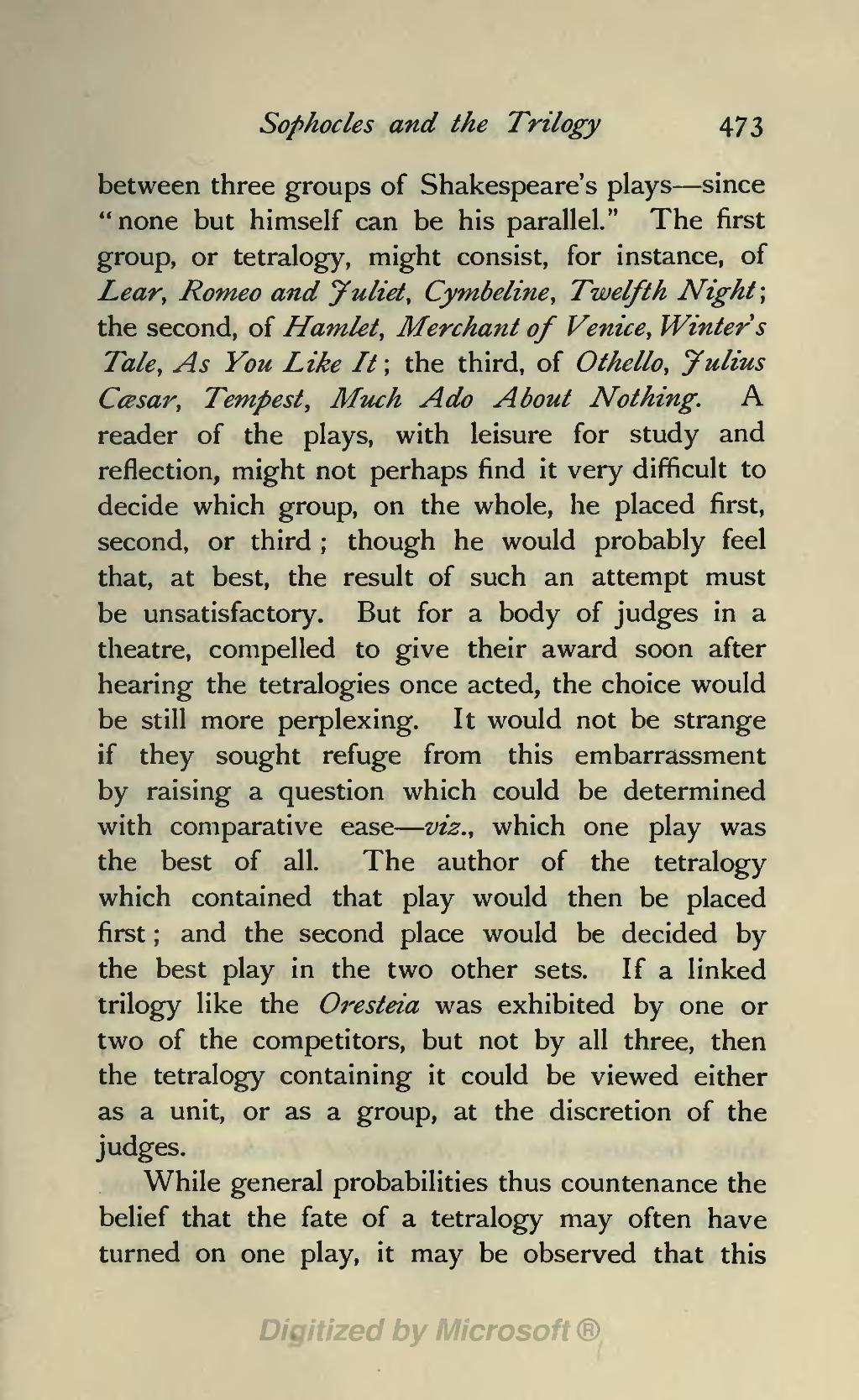between three groups of Shakespeare's plays—since "none but himself can be his parallel." The first group, or tetralogy, might consist, for instance, of Lear, , Cymbeline, Twelfth Night; the second, of Hamlet, Merchant of Venice, Winter's Tale, As You Like It; the third, of Othello, |Julius Cæsar, Tempest, Much Ado About Nothing. A reader of the plays, with leisure for study and reflection, might not perhaps find it very difficult to decide which group, on the whole, he placed first, second, or third; though he would probably feel that, at best, the result of such an attempt must be unsatisfactory. But for a body of judges in a theatre, compelled to give their award soon after hearing the tetralogies once acted, the choice would be still more perplexing. It would not be strange if they sought refuge from this embarrassment by raising a question which could be determined with comparative ease—viz., which one play was the best of all. The author of the tetralogy which contained that play would then be placed first; and the second place would be decided by the best play in the two other sets. If a linked trilogy like the Oresteia was exhibited by one or two of the competitors, but not by all three, then the tetralogy containing it could be viewed either as a unit, or as a group, at the discretion of the judges.
While general probabilities thus countenance the belief that the fate of a tetralogy may often have turned on one play, it may be observed that this
